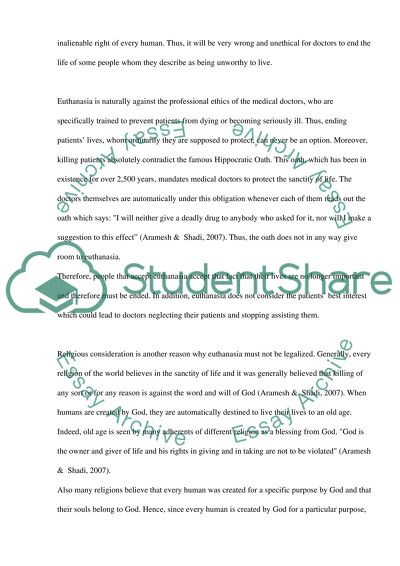Cite this document
(“Euthanasia Essay Example | Topics and Well Written Essays - 1750 words”, n.d.)
Euthanasia Essay Example | Topics and Well Written Essays - 1750 words. Retrieved from https://studentshare.org/english/1610567-euthanasia
Euthanasia Essay Example | Topics and Well Written Essays - 1750 words. Retrieved from https://studentshare.org/english/1610567-euthanasia
(Euthanasia Essay Example | Topics and Well Written Essays - 1750 Words)
Euthanasia Essay Example | Topics and Well Written Essays - 1750 Words. https://studentshare.org/english/1610567-euthanasia.
Euthanasia Essay Example | Topics and Well Written Essays - 1750 Words. https://studentshare.org/english/1610567-euthanasia.
“Euthanasia Essay Example | Topics and Well Written Essays - 1750 Words”, n.d. https://studentshare.org/english/1610567-euthanasia.


